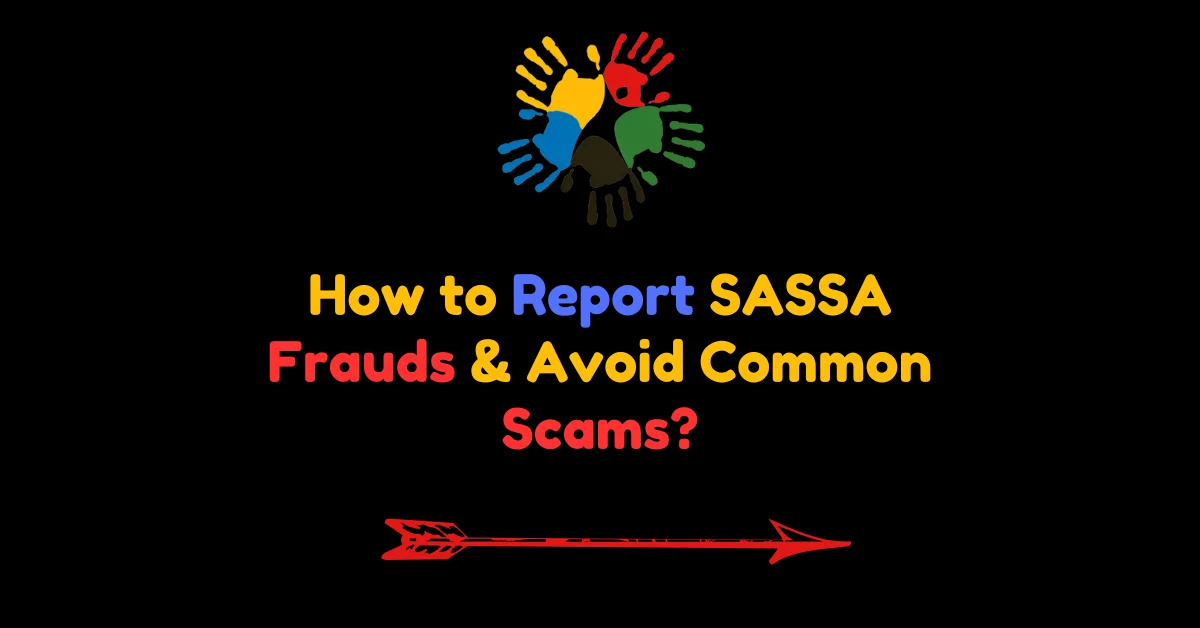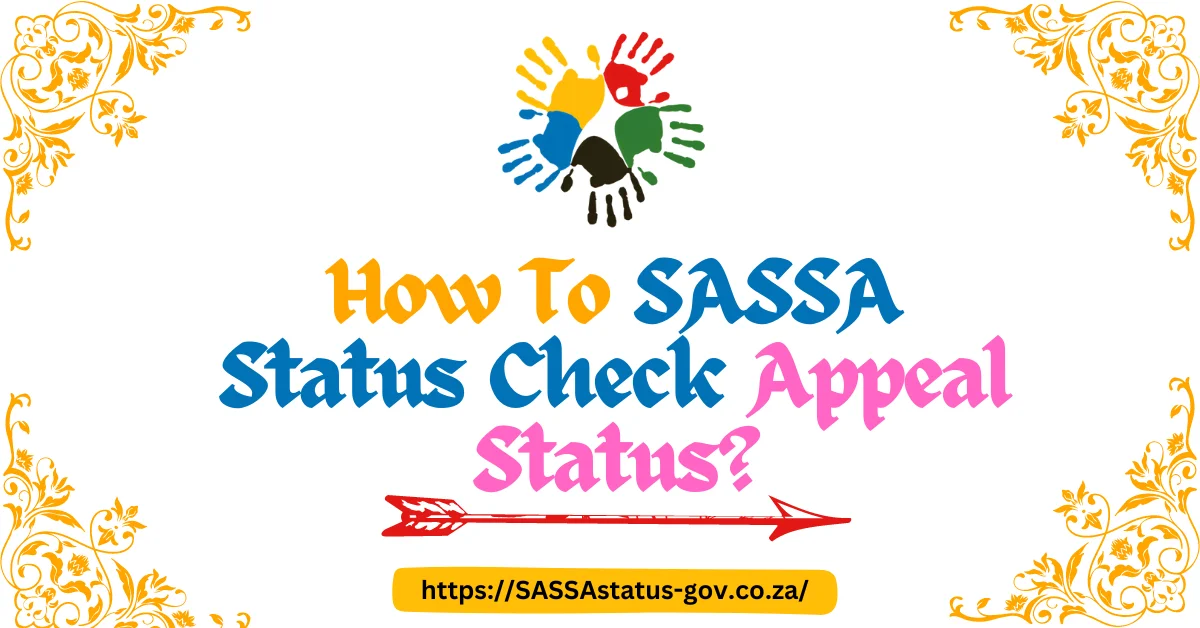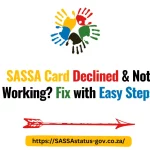Have you been the victim of a SASSA Scam? It’s a scary feeling when someone illegally gains access to your social grant money by stealing your private information. But don’t stress there are clear steps you can follow to shut down the fraudsters and get full control over your grant again.
In this detailed guide, I will explain the sneaky tactics criminals use to unlawfully access SASSA grants like the SRD R370 and Child Support grants. We’ll walk through exactly how to report the fraud so SASSA can quickly block the crooks and help you recover your rightful grant payments.
You’ll also learn lots of handy tips to avoid future SASSA scams and keep your personal data secure from sneaky impersonators and identity thieves. Let’s get started!
How to Report SASSA Fraud in 2025? (Quick Answer)
If you’ve been a victim of SASSA fraud, report it immediately by calling 0800 60 10 11 or visiting a SASSA office with your ID. Provide detailed information about the scam to help SASSA block fraudsters and secure your account. Follow up with the Post Office and the police if needed for serious cases.
How Conmen Steal SASSA Grant Access?
Before we dig into the reporting process, it’s crucial to understand the common criminal methods used for illegally obtaining access to SASSA grants. Scammers are constantly coming up with new sophisticated tricks, but some of their favorite ploys include:
1. Phishing Websites & Fake Messages
Fraudsters create bogus websites designed to look just like the real SASSA site, along with fake emails and SMSes appearing to be from SASSA. But their true aim is tricking you into entering your private login details and other sensitive information on these fraudulent platforms. A few months ago Fraudsters Rob SRD R350 Money by Taking Over Phone Numbers.
2. Impersonation Phone Calls
You may receive calls from people falsely claiming to be SASSA representatives or officials. They’ll try to con you into revealing personal data like ID numbers, bank details or PINs over the phone by making up stories about verifying or updating your grant info.
3. ATM Distractions & Card Swapping
At ATMs and paypoints, crooks watch carefully for opportunities to distract you, maybe offering unsolicited “help”, so they can sneakily swap out your real SASSA card for a fake clone that steals your account info.
4. Illegal Loan Scams
Some criminals offer quick cash loans or money lending services, but their catch is they hold your SASSA card “as collateral” so they can illegally withdraw all your grant money each month!
5. Application “Assistance”
Beware of shady characters on WhatsApp, social media or even in person offering to help you apply for SASSA grants. Their real motive is getting you to hand over the sensitive personal data they need to hijack grant payments.
The common thread with all these underhanded scams? They use deception and shady tactics to manipulate you into voluntarily surrendering private IDs, passwords, financial info and more – handing them the keys to drain your grant money.
Scammers are becoming more brazen and their stunts more sophisticated by the day. But one of the best ways to stop them is promptly reporting any fraudulent incidents through the proper official channels.
How to Report SASSA Frauds?
Follow the below steps to report SASSA Frauds easily.
Step 1: Report Fraud to SASSA Immediately
If you’ve already been the victim of a SASSA scam, with someone improperly accessing your private information, the first priority is reporting the criminal incident to SASSA right away. The sooner you act, the faster they can disable the fraudsters’ access to your account and grant money.
Here’s how to quickly alert SASSA about the fraudulent activity:
- Call the SASSA Toll-Free Hotline at 0800 60 10 11 and report the crime to the call centre operator, explaining that your personal details have been compromised. They will ask for information like your ID number to verify you are the rightful beneficiary.
- Visit Your Nearest SASSA Office in person as soon as possible if you can’t call the hotline. Bring your ID document and the phone number registered to your SASSA account. Staff there will validate your identity so they can shut down the illegal access.
Once SASSA’s team has received your report and verified you are the true grant recipient, they will block any fraudsters from accessing your grant funds. The staff will also advise you on the next steps to completely secure your grant account.
Be prepared to provide as many details about the scam as possible, like dates, names, account numbers and evidence like fake emails or SMS messages you received. This information can help SASSA investigate exactly what happened.
Step 2: Report to Post Office & Police
After notifying SASSA’s team about the breach, your next move is reporting the criminal fraud incident to other relevant authorities, depending on how severely your personal banking information was compromised.
If you have any reason to believe the scammers illegally accessed your actual SASSA card or banking details linked to the grant, you need to file a report with the Post Office right away. This allows them to deactivate any card numbers or accounts the crooks may have illegally obtained.
To report SASSA fraud to the Post Office, you’ll need the following documents prepared:
- A completed SASSA fraud affidavit form that you can get from any Post Office or SASSA branch
- A certified copy of your ID document (for smart ID cards, make copies of both front and back)
- A certified copy of your SASSA card itself, with copies of both sides
Once you have those documents ready, you can submit the fraud report either by visiting your nearest Post Office location in person or emailing it to [email protected]. Be sure to keep copies for yourself.
After processing your report, the Post Office team will take the necessary actions like deactivating compromised card numbers and bank accounts. They’ll also guide you through additional steps to re-secure your SASSA grant from your end.
For especially serious criminal fraud cases, you may want to take the further step of filing an official report with the South African Police Service (SAPS). While this step isn’t always necessary, it does allow the police to open up a formal investigation into the matter.
To report to your local SAPS branch, simply visit your nearest police station and request to file a criminal fraud report related to your SASSA grant. Bring along any supporting evidence like fake SMS messages, emails or personal testimony about what happened. SAPS can then decide if the crime warrants further legal action.
Step 3: Report to Anti-Corruption Hotline
As one final avenue for reporting SASSA fraud, there is the option of contacting the National Anti-Corruption Hotline, which is run by the Public Service Commission. To file a complaint through this channel, simply call the toll-free number 0800 701 701.
While most SASSA fraud cases can likely be resolved through the proper reporting to SASSA itself, the Post Office and potentially SAPS, the anti-corruption hotline provides an extra level of oversight. Use this option if you find the normal reporting channels are not adequately resolving your case in a timely manner.
The key with reporting any suspicions of criminal SASSA fraud activity is acting quickly. The sooner you can get the authorities looped in and put a halt to the illegal account access, the better protected your grant money will be.
Don’t feel embarrassed about falling victim to savvy scammers – their criminal tactics are becoming extremely deceptive. What’s most important is reporting through all the right channels to halt their access ASAP.
What if My SASSA Number Was Changed?
Another common scam tactic is fraudsters illicitly changing your registered mobile phone number linked to your SASSA account over to a number they control secretly. That way, they can hijack any account updates or communications sent by SASSA.
If you suspect your SASSA phone number has been illegally altered without your consent, you can quickly report the unauthorized change through SASSA’s online website. Just:
- Visit srd.sassa.gov.za/sc19/auth
- Enter your 13-digit SA ID number in the provided field
- Click “Submit”
That’s all it takes to flag the improper number change with SASSA’s team. They will investigate the matter and revert your account phone number back to the proper, authorized number you originally had on file.
Of course, you can also report suspected phone number fraud by calling the SASSA hotline 0800 60 10 11 or visiting your local SASSA office in person if you prefer communicating the issue directly with a staff member.
How to Protect Yourself from SASSA Scams?
Once you’ve successfully reported any incidents of SASSA fraud and had your grant access properly re-secured, it’s time to focus on protecting yourself from future scams and criminal schemes. Vigilance is key when it comes to safeguarding your private information!
Use these tips and best practices to avoid SASSA impostors and identity thieves:
1. Only Use Official Channels
Outright ignore any calls, emails, texts or messages regarding your SASSA grant if they didn’t originate from official government channels like sassa.gov.za or SASSA’s published helpline numbers. Scammers often impersonate SASSA through fake communications.
2. Safeguard Personal Info
Never share sensitive personal details like ID numbers, SASSA PINs/passwords, or banking information with anyone unless you initiated contact first and verified they are legitimate SASSA staff. Be very cautious who you grant this data to.
3. Secure Physical Documents
Keep important physical documents containing private info – ID books, SASSA cards, pay stubs, etc. – safely locked away where they can’t be stolen, lost or accessed by others. Report any lost documents immediately.
4. Reject Unsolicited Offers
Be extremely wary of any out-of-the-blue offers related to loans, grants, services or benefits connected to SASSA if you didn’t specifically request it first. These are likely scams aiming to steal your info.
5. Review Statements Routinely
On a regular basis, thoroughly check over your SASSA grant payment records, bank statements and other financial paperwork for any suspicious activity or transactions you didn’t personally authorize. Report any discrepancies right away.
6. Update Contact Details
Make sure SASSA has your latest mobile number, home address and other contact details on file. This prevents scammers from hijacking outdated contacts to impersonate you.
7. Stay Informed on Scams
Pay attention to media reports, SASSA website updates and communications regarding the latest fraud schemes and tactics being used by criminals so you know what to watch out for.
8. Spread Scam Awareness
Share the knowledge you’ve gained about SASSA scams with friends, relatives and community members so they can also learn how to identify and avoid shady tactics targeting grant money.
Scammers are constantly evolving their techniques, so the best defense is a proactive offense! Remain vigilant about protecting your private information at all times, and don’t ever let your guard down when it comes to unsolicited communications regarding your grants.
The more careful you can be about securing your personal data, the less chance dishonest criminals have to illegally access your SASSA grant funds. Stay alert, stay skeptical of any suspicious requests for info, and don’t become the next scam victim!
Frequently Asked Questions
Q: What if I accidentally gave fraudsters my info before realizing it was a scam?
Don’t panic – the most important step is reporting the incident immediately through the proper SASSA channels so they can shut down any illegal access. Don’t feel ashamed, as scammers are using very deceitful tactics to trick people.
Q: Someone already stole my grant money before I could report it – what now?
Follow the full reporting process outlined here, providing as much evidence and details about the crime as you can to SASSA, the Post Office, police and anti-corruption hotline if needed. The more information you can furnish, the easier it will be for authorities to investigate.
Q: How quickly can I expect SASSA to resolve a reported fraud case?
SASSA aims to block any fraudulent grant access within a few days once you’ve successfully reported the incident through their hotlines/offices and they’ve verified your identity. But full resolution can sometimes take a bit longer if the case is particularly complex.
Q: What if I suspect my personal info was leaked, but no fraud has happened yet?
Routinely inspect things like SASSA statements, bank transactions, credit reports and other financial records for any signs of unauthorized activity you didn’t approve of. If something seems amiss, report it before actual money is stolen.
Q: I reported through all proper channels but the fraud is still occurring – what next?
If you don’t see adequate action taken after reporting through SASSA’s mechanisms as well as the Post Office, police and anti-corruption hotline, you may need to follow up repeatedly or re-escalate the issue until it gets resolved.
Protecting your SASSA grant requires an ongoing effort, but you’re the first line of defense against criminal fraud schemes. By staying alert, promptly reporting any scams, and safeguarding your private information vigilantly, you can steer clear of SASSA impersonators looking to drain your grant funds. It’s an endless battle, but one you’re equipped to win!

I’m Anele Zulu, a South African social worker dedicated to serving my country’s most vulnerable. With my degree and field expertise, I empower underprivileged communities through compassionate support and tireless advocacy on this website. My goal is simplifying access to services so families can uplift themselves
Contents
- 1 How to Report SASSA Fraud in 2025? (Quick Answer)
- 2 How Conmen Steal SASSA Grant Access?
- 3 How to Report SASSA Frauds?
- 4 What if My SASSA Number Was Changed?
- 5 How to Protect Yourself from SASSA Scams?
- 6 Frequently Asked Questions
- 6.1 Q: What if I accidentally gave fraudsters my info before realizing it was a scam?
- 6.2 Q: Someone already stole my grant money before I could report it – what now?
- 6.3 Q: How quickly can I expect SASSA to resolve a reported fraud case?
- 6.4 Q: What if I suspect my personal info was leaked, but no fraud has happened yet?
- 6.5 Q: I reported through all proper channels but the fraud is still occurring – what next?



![SASSA Grants Types in South Africa [2025] - [Ultimate Guide] SASSA Grants Types in South Africa](https://sassasrdstatus.web.za/wp-content/uploads/2024/10/SASSA-Grants-Types-in-South-Africa-150x150.webp)


!["I Lost My SASSA Reference Number" Recover it with 4 Easy Methods in [2024] How to Recover Lost SASSA Reference Number?](https://sassasrdstatus.web.za/wp-content/uploads/2024/05/How-to-Recover-Lost-SASSA-Reference-Number--150x150.webp)
![SASSA Status Check Failed in 2025? Step by Step Guide SASSA Status Check Failed [Solved] (1)](https://sassasrdstatus.web.za/wp-content/uploads/2024/05/SASSA-Status-Check-Failed-Solved-1-150x150.webp)